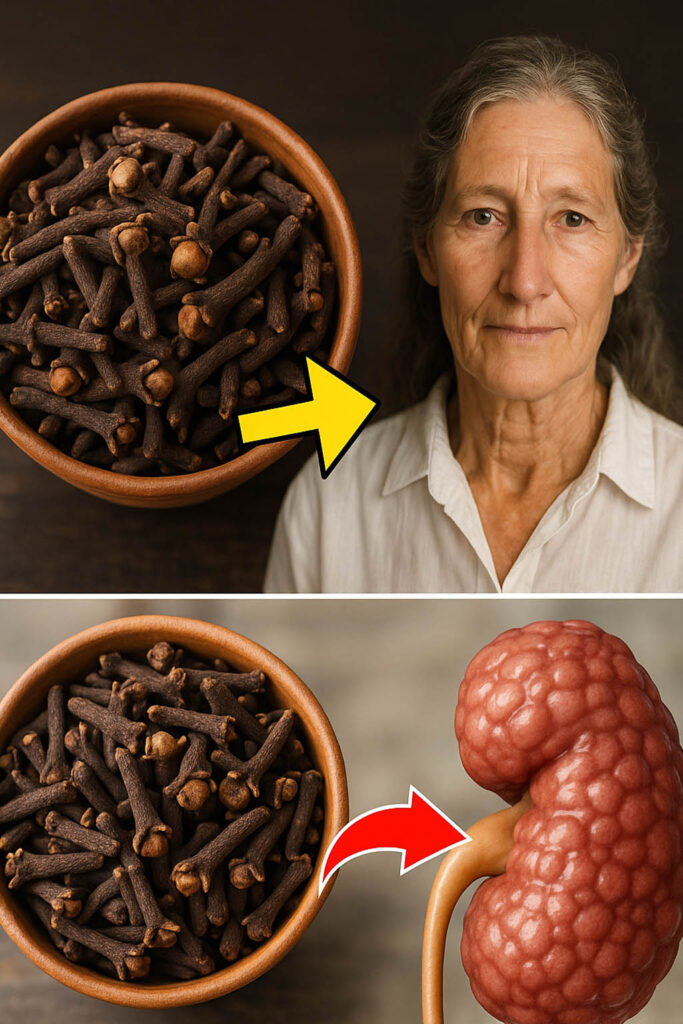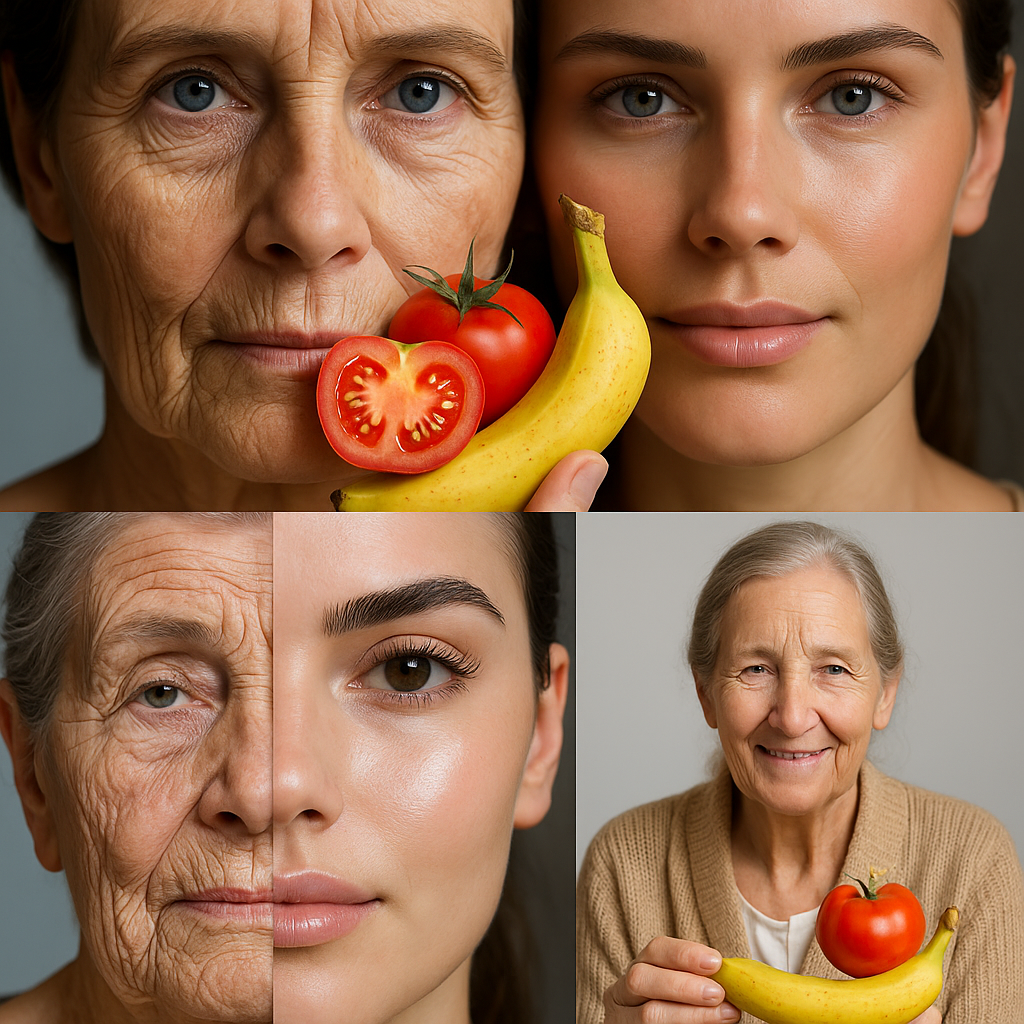🧐 Think cloves are always safe because they’re natural? Think again. While these fragrant buds are often hailed as healing heroes, the truth is more complicated. For some people, cloves might be doing more harm than good — and the risks aren’t as well-known as they should be.
If you’re using cloves in your tea, dishes, or remedies thinking they’re universally beneficial, it’s time to take a closer look. Certain health conditions can turn this everyday spice into a hidden danger. Let’s explore when cloves could be problematic and why you might need to put them back on the shelf.

🌶️ 1. Acid Reflux and GERD: A Fire You Don’t Want to Feed
Cloves are loaded with eugenol, a compound that fights inflammation. Sounds great, right? But here’s the twist: eugenol also relaxes the lower esophageal sphincter — the muscle that keeps stomach acid where it belongs. When that muscle loosens up, acid creeps into the esophagus, worsening acid reflux or GERD symptoms. If you suffer from heartburn, cloves could make your symptoms flare up instead of calming them down.
🩸 2. Blood Disorders and Bleeding Risk: When Circulation Turns Dangerous
Cloves are natural blood thinners. For most people, that might seem like a plus — improved blood flow, reduced inflammation. But for those with bleeding disorders or who are taking anticoagulants like warfarin, this effect can become risky fast. Cloves may increase bleeding risk, making even minor cuts or injuries harder to manage.
🌼 3. Spice Allergies: Not Every Herb Is Friendly to Your Immune System
Some people are naturally sensitive to spices, especially those in the Myrtaceae family, which includes cloves. An allergic reaction to cloves can range from mild skin irritation to serious respiratory issues. If you’ve ever had a reaction to guava, eucalyptus, or similar plants, it might be safer to avoid cloves entirely.
🤰 4. Pregnancy and Breastfeeding: Proceed with Caution
Pregnant women should be especially cautious with cloves. In large amounts, cloves may stimulate uterine contractions — a serious risk, especially in early pregnancy. Breastfeeding mothers should also be careful, as active compounds like eugenol can pass into breast milk. Small amounts in food are usually safe, but medicinal or excessive use is not recommended without a doctor’s approval.
🧬 5. Liver Conditions: When Healing Becomes a Hazard
Your liver processes every compound that enters your body — and eugenol in cloves is no exception. In large doses, this powerful compound can strain or damage the liver, especially if you already have a liver condition or impaired liver function. Clove oil, in particular, should be used with extreme care or avoided altogether if your liver is compromised.
🔥 6. Stomach Ulcers: Too Spicy for an Already Inflamed Stomach
Cloves are known to support digestion — but that doesn’t mean they’re always gentle. If you have a stomach ulcer, cloves can irritate the stomach lining and worsen symptoms. Their spicy nature can trigger acid production and make an already delicate digestive system more inflamed. In these cases, milder herbs like chamomile or slippery elm are safer alternatives.
🍬 7. Hypoglycemia: The Sweet Spice with a Sugar-Lowering Side
Cloves can help regulate blood sugar — which is good news for people with type 2 diabetes. But for those who struggle with low blood sugar (hypoglycemia), that same benefit becomes a risk. If you consume cloves while already managing dips in glucose, you could trigger lightheadedness, fainting, or worse. Monitor your blood sugar closely if you choose to use cloves and avoid large amounts.
🚰 8. Kidney Conditions: The Silent Strain You Don’t See Coming
Excessive intake of clove oil or even large amounts of cloves can burden the kidneys, especially for people with chronic kidney disease. The high concentration of eugenol and other active compounds may be difficult for compromised kidneys to filter. This could lead to toxicity or worsen kidney function over time.
⚠️ 9. Skin Sensitivity: When Topical Turns Troublesome
Clove oil is a popular ingredient in natural skincare, but its potency can be too much for sensitive skin. Undiluted, it can cause burning, redness, or even chemical-like reactions. Always dilute clove oil before applying it to the skin, and test it on a small patch before wider use. If you’re prone to irritation, it might be best to avoid it altogether.
💡 Final Takeaway: A Powerful Spice, But Not for Everyone
Cloves are potent. That’s exactly what makes them so valuable — and potentially dangerous. If you’re generally healthy, using cloves in cooking or teas is likely fine. But if you fall into any of the categories above, it’s crucial to use cloves with care or avoid them completely.
Always remember: natural doesn’t mean harmless. Herbs and spices have real biological effects, and understanding those effects is essential to using them safely. Before turning to cloves as a remedy, ask yourself — is this spice right for your body?
✅ Your Best Bet? Moderation, Awareness, and Professional Guidance
Cloves have earned their place in kitchens and natural medicine cabinets worldwide. But knowledge is power. Now that you’re aware of the potential risks, you can make better choices — protecting your health while still benefiting from the gifts nature has to offer.

